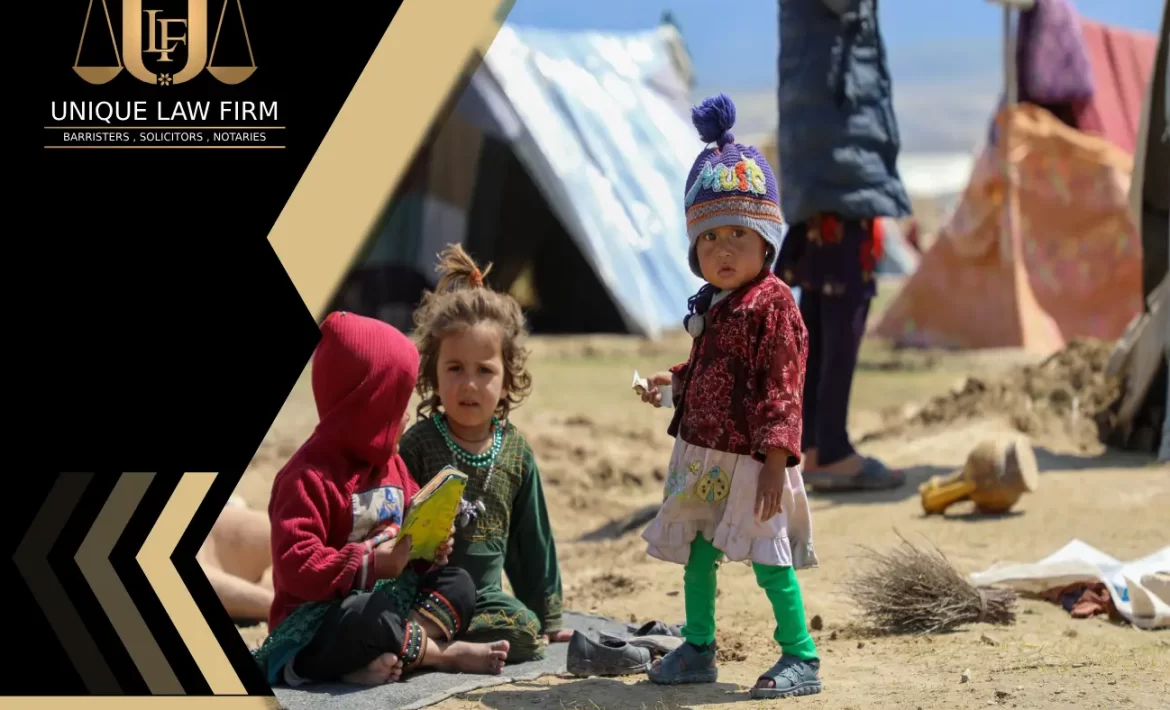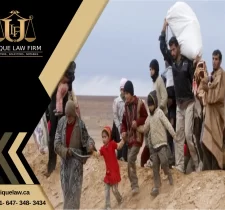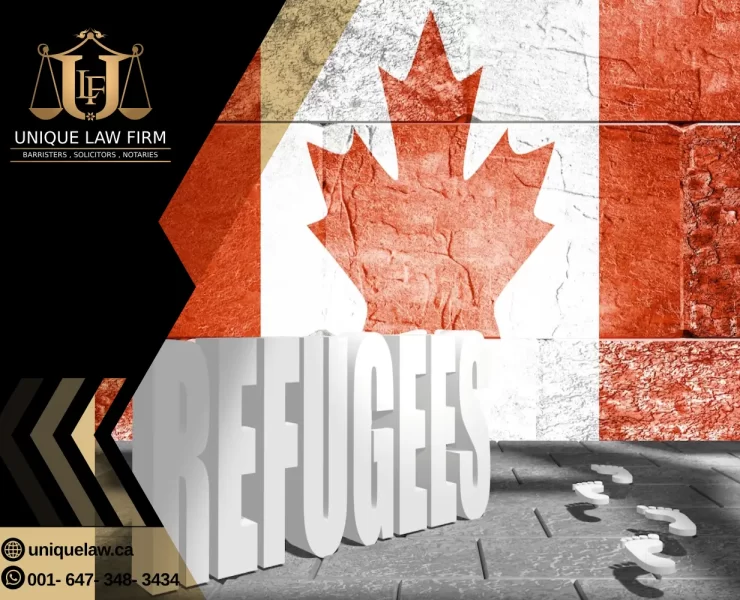Challenges in Accepting Child Refugees in Canada
Child refugees are one of the critical topics in human rights and social issues in today’s world. Given the unbearable conditions many children face—including war, persecution, and other negative social and economic impacts in their home countries—Canada stands out as a country that offers structured opportunities for these vulnerable groups. However, several challenges exist that can impede the acceptance and integration of these children. This article explores the challenges associated with accepting child refugees in Canada.
1.Understanding and the Importance of Child Refugee Status
Child refugee status refers to the protection of children who are compelled to flee their countries due to various reasons, such as persecution, war, and insecurity. These children may face unique situations, such as being separated from family, or suffering from physical and psychological trauma. Because children are recognized as a vulnerable group, addressing their specific needs during the refugee process is essential.
2. Identification and Age Determination
- Challenges of Identification
One of the primary challenges in accepting child refugees in Canada is accurately identifying children and determining their ages. Many child refugees may lack identification documents or may have been separated from their families in crisis situations. The lack of proper documentation can hinder the application review process. Therefore, age determination is a crucial factor in identifying the type of refugee status and services that the child requires.
- Consequences of Misidentification
If a child’s age is not accurately determined, they may be mistakenly categorized as an adult or an older child. This misidentification can affect their acceptance process and the types of services they receive. For example, younger children may require more care and support, which may not be provided if their age is overlooked.
3. Arrival and Application Registration
- Complex Application Process
Children cannot easily submit a refugee application on their own. They generally need to be accompanied by an adult or legal representative, which can complicate administrative processes. The lack of appropriate legal support may lead to the rejection or delay of their refugee applications.
- Language and Communication Barriers
Child refugees may find themselves faced with a new language, making it difficult for them to communicate effectively. This barrier can prevent them from expressing their needs and desires, negatively impacting their success in the refugee process.
4. Legal and Administrative Challenges
- Legal Representation
Child refugees need legal representation to defend their rights effectively. However, the lack of suitable attorneys or limited access to legal services can hinder their ability to file proper refugee applications. In some cases, children may be unable to afford legal fees, leaving them without the necessary advocacy for their rights.
- Complexity of the Legal System
The legal system in Canada may not be easy for a child to navigate. Lengthy and complex processes can have adverse effects on these children’s morale, leading to feelings of despair and mistrust. Additionally, these complexities can result in unnecessary delays in processing refugee applications.
5. Mental and Emotional Trauma
- Impact of Traumatic Experiences
Many child refugees carry deep emotional scars due to experiences of war, persecution, and separation from their families. These traumatic experiences can lead to significant and lasting psychological effects. The lack of adequate mental health services can exacerbate these issues and adversely affect their daily lives.
- Absence of Emotional Support
Children may feel isolated and insecure due to the absence of family and emotional support in their new environments. Adequate emotional support is crucial for these children as they navigate the crises they have experienced. Without such support, they are more likely to develop mental health issues.
uniquelaw
6. Social and Cultural Integration
- Integration Challenges
Child refugees face numerous challenges when it comes to integrating into a new community. They may encounter difficulties in language acquisition, developing new friendships, and adjusting to a different culture. This integration can be particularly challenging for unaccompanied children.
- Fostering a Sense of Belonging
Creating a sense of belonging in new communities is vital for child refugees. The lack of social support and connections with other children can lead to feelings of alienation and insecurity. Encouraging social opportunities for these children to connect with their peers can help improve their emotional and social well-being.
7.Risks of Exploitation and Abuse
- Vulnerability to Exploitation
Due to their unique circumstances, child refugees are at a higher risk of exploitation and abuse. Without adequate oversight and support, they can easily fall prey to predators. This can have severe and detrimental effects on their physical and mental well-being.
- Need for Monitoring
Proper oversight and support from relevant authorities are necessary to protect child refugees from exploitation and abuse. This includes creating safe spaces and support programs to ensure these children can live in secure environments.
8.Access to Education and Life Skills
- Educational Challenges
Access to education is a significant issue for child refugees. They may struggle academically and socially due to unfamiliarity with the language and educational systems, as well as a lack of adequate educational resources.
- The Importance of Education
Education is critical for child refugees to attain success and social integration. Providing educational resources and support programs can help these children develop their skills and better adapt to their new community.
9.Supportive Policies and Necessary Actions
- Need for Comprehensive Policies
To address the challenges faced by child refugees in Canada, comprehensive and effective policies are essential. These policies should include support programs for education, mental health, and social integration. Ensuring the availability of adequate resources and infrastructure is critical.
- Inter-Organizational Collaboration
Collaboration between governmental bodies, NGOs, and civil society organizations is key to improving conditions for child refugees. Such partnerships can adequately respond to the specific needs of these children and facilitate the acceptance and integration processes.
Conclusion
The topic of child refugees in Canada is complex and requires special attention. These children face multiple challenges that can significantly impact their lives. From identification and legal issues to emotional, social, and educational barriers, each aspect demands careful consideration and support. As a welcoming nation, Canada has a responsibility to ensure that these children can live in a safe and supportive environment and build a bright future.
Improving the acceptance process and creating appropriate educational and social support networks can help these children confront their challenges and integrate into their new communities effectively. By emphasizing the significance of child refugees in Canada, we must strive to provide better conditions for this vulnerable group and advocate for their rights and needs.


















